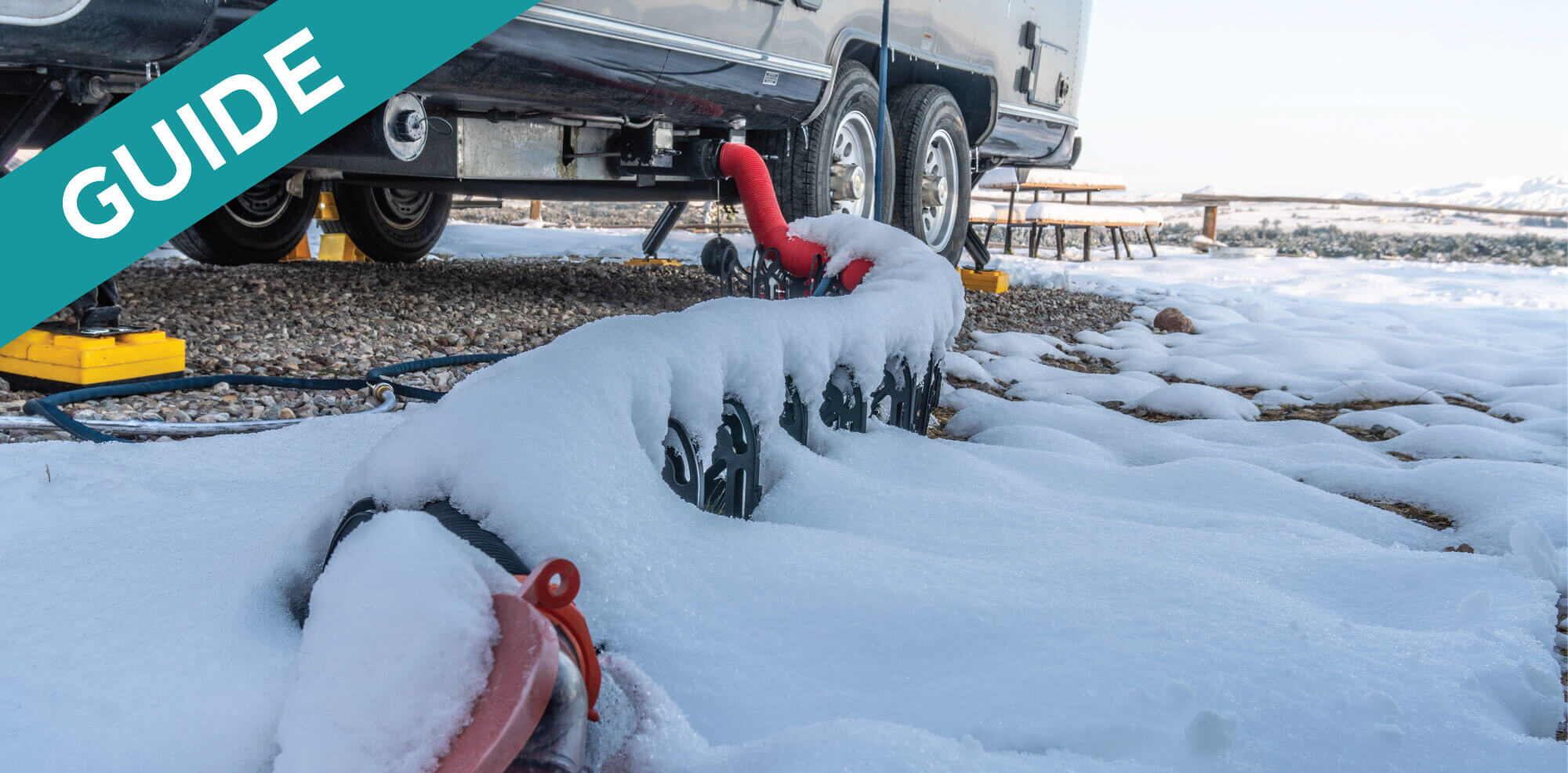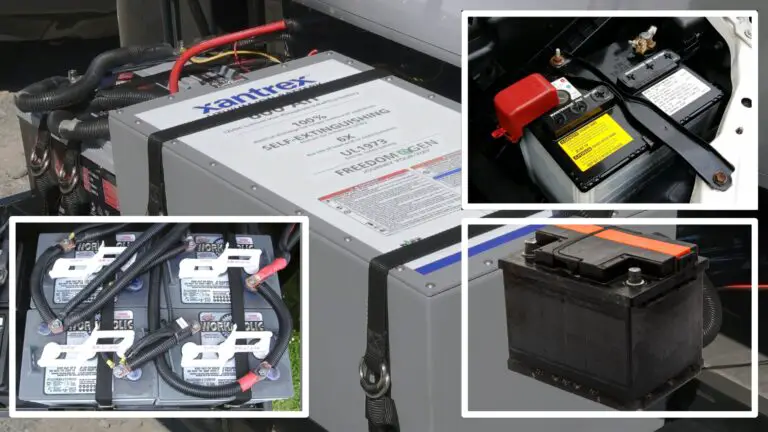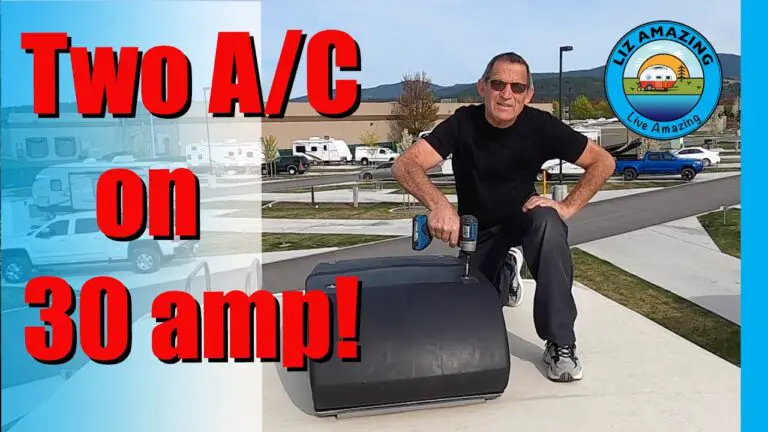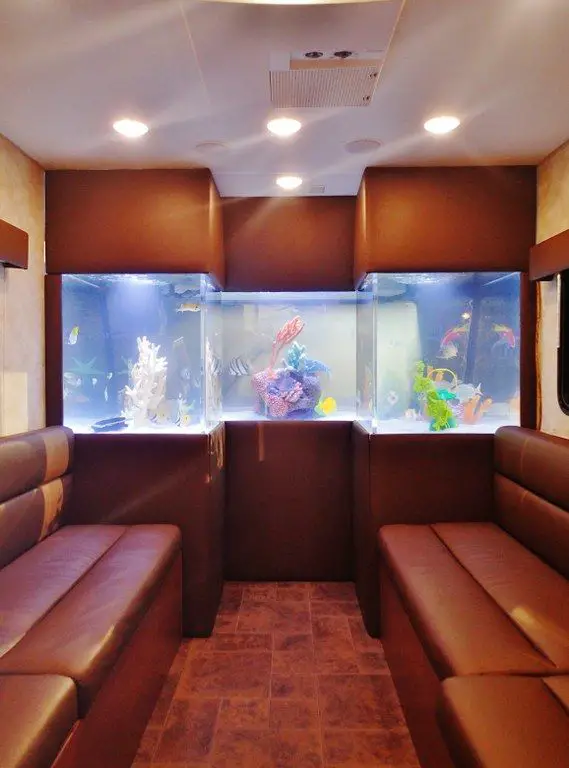How Long Can You Leave Black Water in Rv
You can leave black water in an RV for a maximum of 3-5 days before it needs to be emptied due to odor and hygiene concerns. RV black water tanks should be periodically emptied to prevent overflowing and maintaining a healthy environment.
Neglecting to empty the tank can result in unpleasant odors and potential damage to the RV’s plumbing system. Additionally, leaving black water for extended periods can lead to the growth of bacteria and other harmful contaminants. It is important to establish a regular schedule for emptying and cleaning the black water tank to ensure a safe and enjoyable RV experience.
Importance Of Proper Waste Management In An Rv
Proper waste management is crucial for maintaining a comfortable RV experience. One significant aspect of waste management is the maintenance of black water tanks. Neglecting this essential task can have serious consequences. One consequence of ignoring black water maintenance is the development of foul odors that can permeate throughout the RV, making it unbearable to stay in. An overflowing black water tank is another potential consequence, which can result in messy and unsanitary situations.
Regularly emptying and cleaning the black water tank is necessary to prevent these issues. It is recommended to empty the tank when it reaches about 3/4 full to avoid any potential overflows. Additionally, proper cleaning and use of tank treatments can help control odors and maintain the tank’s functionality. Remember to follow the manufacturer’s instructions for cleaning products and treatments to ensure their effectiveness.
By prioritizing proper waste management and regularly maintaining the black water tank, RV owners can enjoy a comfortable and pleasant camping experience without the worry of unpleasant odors or messy situations.
Factors That Affect The Duration Black Water Can Be Left In The Rv
When it comes to the duration that black water can be left in the RV, several factors need to be considered:
- Size and capacity of the black water tank: The size and capacity of the black water tank play a crucial role in determining how long it can be left without emptying. Larger tanks can hold more waste and therefore last longer before needing to be emptied.
- Frequency of usage and occupation of the RV: The more frequently the RV is used and occupied, the quicker the black water tank will fill up. It is important to assess the frequency of usage and plan accordingly for emptying the tank.
- Climate conditions and temperature variations: Climate conditions and temperature variations can impact the rate at which waste materials break down and decompose. Warmer temperatures tend to accelerate the decomposition process, while colder temperatures may slow it down.
- Types of waste materials being collected: Different types of waste materials may require different measures of disposal. Certain waste materials may break down more quickly, while others may have the potential to cause odors or clog the system if left for too long.
Considering these factors will help determine how long black water can safely be left in the RV before it needs to be properly emptied and disposed of.
Safety Measures For Leaving Black Water In The Rv Long-term
When it comes to leaving black water in an RV long-term, it’s important to follow proper safety measures. Regular tank maintenance and cleaning procedures should be implemented to ensure the tank remains in optimal condition. This includes emptying and flushing the tank regularly and using high-quality cleaning products.
Proper use of chemicals and additives is essential for controlling odors and breaking down waste. Choose products that are specifically designed for RV black water tanks and follow the recommended usage instructions.
Monitoring tank levels is crucial to avoid overfilling the tank, which can lead to leaks or other potential issues. Using a tank level monitoring system or regularly checking the tank levels manually can be helpful in preventing overfilling.
Clogs and backups can be prevented by being mindful of what is being flushed down the toilet. Avoid disposing of items that can cause blockages, such as sanitary products, wipes, or excessive amounts of toilet paper. Implementing these preventative measures will help ensure a safe and hassle-free experience when leaving black water in the RV long-term.
Maximum Recommended Duration For Leaving Black Water In The Rv
Maximum Recommended Duration for Leaving Black Water in the RV
Properly managing black water in your RV is crucial for overall hygiene and to avoid health risks. The duration for leaving black water in the RV can vary based on several factors such as tank capacity, occupancy, and waste management practices.
| Tank Capacity | Occupancy | Waste Management Practices | Recommended Maximum Duration |
|---|---|---|---|
| Small | Low | Regular emptying and cleaning | 3-4 days |
| Medium | Moderate | Proper waste treatment and maintenance | 5-7 days |
| Large | High | Efficient waste disposal system | 7-10 days |
It is important to note that exceeding the recommended maximum duration can lead to unpleasant odors, overflow, and potential damage to the RV’s plumbing system. Therefore, regular emptying, cleaning, and proper waste treatment are essential to ensure a clean and hygienic environment inside your RV.
Signs That Black Water Should Not Be Left In The Rv Any Longer
Leaving black water in an RV for too long can lead to serious problems. One indication that the tank is reaching its maximum capacity is the presence of unpleasant odors and foul smells. These odors can permeate throughout the RV, making it an uncomfortable living space. Additionally, the potential risks of leaks or damages to the tank increase the longer the black water is left untreated. Leaks can cause water damage to the RV and create unsanitary conditions.
Steps To Safely Empty Black Water From The Rv
Emptying the black water tank of your RV is an essential task that requires careful steps to ensure safety and cleanliness. One of the first steps is locating an appropriate dump station where you can properly dispose of the black water. These dump stations are specifically designed to handle waste water from RVs and provide a convenient and safe way to empty the black water tank. Once you have located a dump station, you need to follow proper procedures for disconnecting and emptying the black water tank. This involves using the appropriate tools and taking precautions to prevent spills and contamination. After disposal, it is important to clean and sanitize the tank to maintain proper hygiene and prevent odors. Regular maintenance and cleaning of the black water tank will help prolong its lifespan and ensure a hassle-free RV experience.
Common Black Water Mistakes To Avoid In An Rv
When it comes to maintaining your black water tank in an RV, there are a few common mistakes that you should avoid. Neglecting regular maintenance and neglecting tank cleaning can lead to serious issues down the line. It’s important to regularly clean and empty your tank to prevent build-up and odors. Using incorrect chemicals or additives that may deteriorate the tank can also cause problems. Always follow manufacturer recommendations when selecting products to use in your tank. Ignoring warning signs, such as leaks or strange smells, and delaying necessary repairs can lead to more extensive and costly problems later on. Finally, failing to properly prepare the tank before winter storage can result in frozen pipes and damage to the system. Take the time to follow proper winterization procedures to protect your RV’s black water tank.

Credit: rvshare.com
Frequently Asked Questions For How Long Can You Leave Black Water In Rv
How Long Can You Leave Black Water In An Rv?
Leaving black water in an RV for too long can lead to unpleasant odors and potential damage to the plumbing system. It is recommended to empty the black water tank regularly, ideally every 3-4 days to prevent any issues. Regular maintenance and proper cleaning of the tank will ensure a smooth and odor-free experience while traveling in your RV.
What Happens If You Leave Black Water In An Rv Too Long?
Leaving black water in an RV for an extended period can result in the buildup of solids, leading to clogs and blockages in the plumbing system. This can cause severe damage and unpleasant odors inside the RV. It is essential to empty and clean the black water tank regularly to maintain good hygiene and prevent potential problems.
How Do You Clean Black Water Tanks In An Rv?
Cleaning the black water tank in an RV involves a few steps. First, empty the tank completely at an appropriate dumping station. Then, use a specialized RV black water tank cleaner to thoroughly clean the tank, following the product instructions.
Rinse the tank with fresh water, and add tank treatments to control odors. Regular cleaning and maintenance will keep your RV’s black water tank in good condition.
Is It Safe To Leave Black Water In An Rv During Winter?
Leaving black water in an RV during winter is not safe. Freezing temperatures can cause the water in the tank to expand, potentially damaging the tank and the plumbing system. It is crucial to properly winterize your RV, including emptying and flushing the black water tank, before storing it for the winter season to avoid any costly repairs or replacements.
Conclusion
Ultimately, the length of time you can leave black water in your RV depends on a variety of factors such as tank size, usage frequency, and proper maintenance. Regularly emptying and cleaning your black water tank is crucial for preventing odors, clogs, and tank damage.
By following proper RV hygiene practices, you can ensure a stress-free and clean experience on your travels. Take the necessary steps to maintain your RV’s black water tank and enjoy your adventures worry-free.







